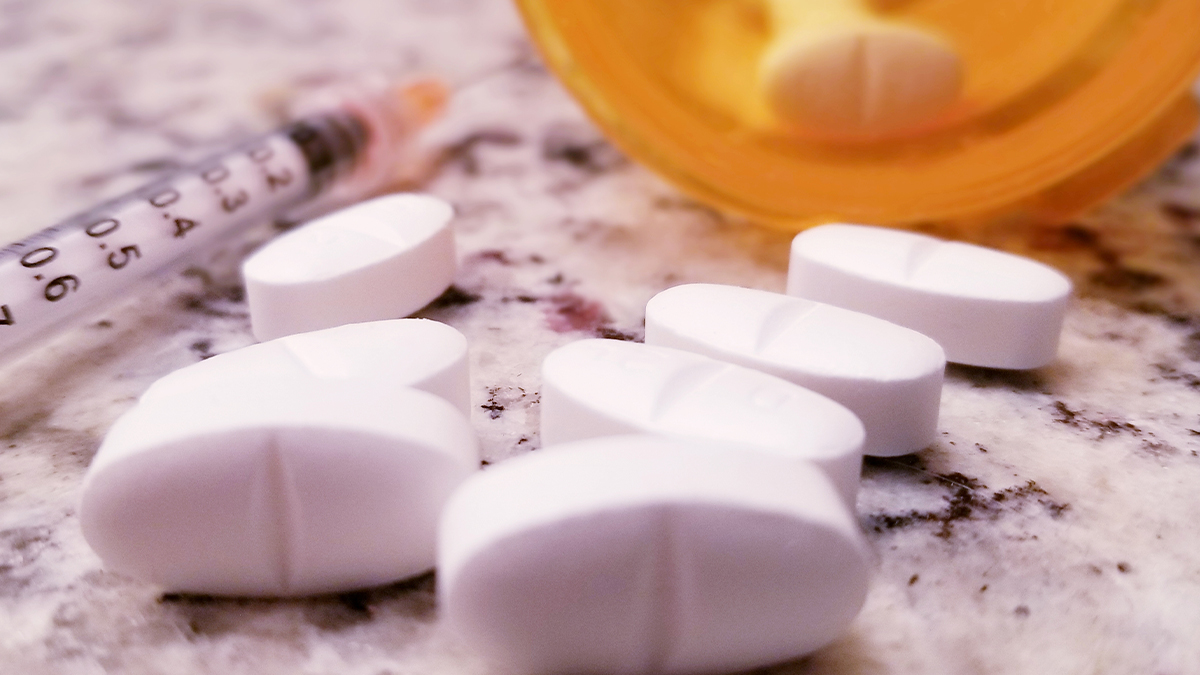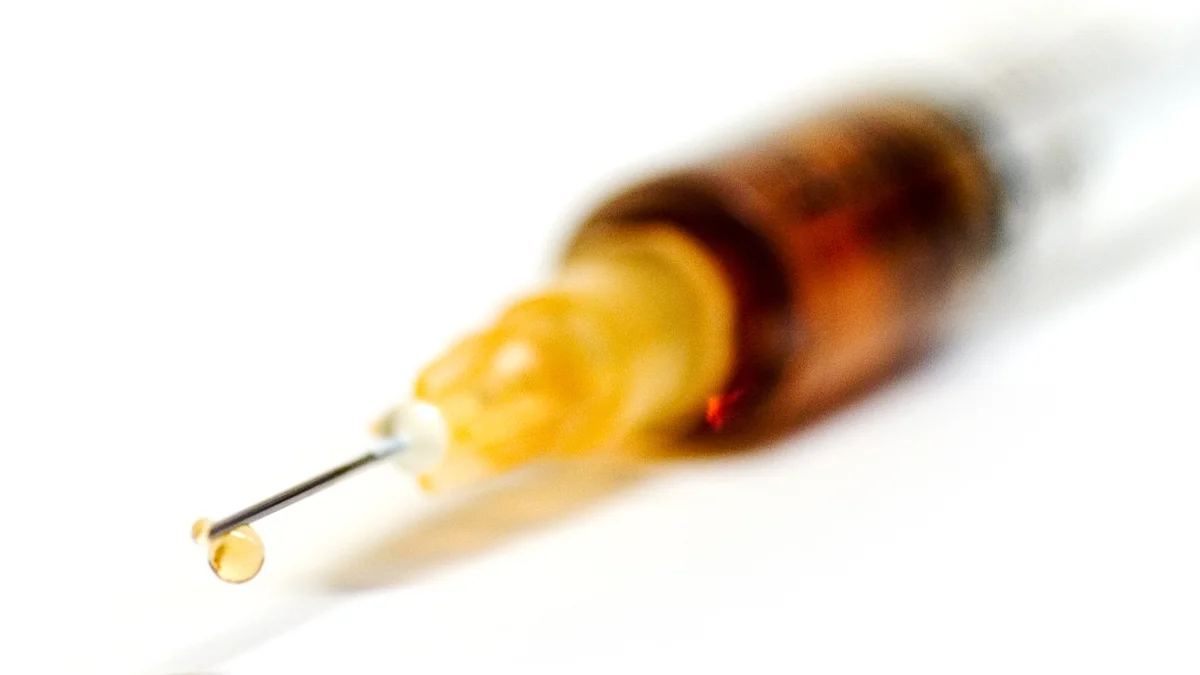
Lyrica With Suboxone: Risks And Safe Practices
The Recovery Team-Newton explores whether taking Lyrica with Suboxone is safe. Explore potential risks and guidelines

Originally prescribed for anxiety, insomnia, and seizure disorders, barbiturates gained popularity in the mid-20th century.
Despite their therapeutic potential, these sedative-hypnotic drugs pose a high addiction risk. Prolonged use leads to tolerance, prompting individuals to escalate their dose, inadvertently spiraling into dependency.
Understanding the dual nature of barbiturates as both treatment and threat is paramount in addressing their impact on individuals and society
Addiction to barbiturates should not be underestimated, as it can have severe consequences for physical and mental health. Here’s what you need to know:
Call The Recovery Team-Newton at (800) 817-1247 for more information about barbiturate addiction treatment.
Barbiturates, a class of central nervous system depressants, have a long history of medical applications. However, their use has declined in recent years in the United States and worldwide due to safety concerns and the emergence of safer alternatives.
Here are some of the most common medical uses of barbiturates:
Barbiturates were once prescribed to treat insomnia. They induce sleep by slowing down (depressing) the central nervous system, promoting relaxation and drowsiness. However, the use of barbiturates for insomnia has dwindled due to the risk of dependence and the availability of safer sleep medications with fewer side effects.
Certain barbiturates, such as phenobarbital, have effectively controlled seizures in people with epilepsy. They work by reducing the excitability of neurons, making them less prone to firing erratically.
Although phenobarbital is still used in some cases, newer antiepileptic drugs with better safety profiles are now preferred.
Barbiturates were once widely used as sedatives and anesthetics in medical procedures. They induce deep relaxation and unconsciousness, making them valuable for surgeries and other medical interventions.
However, their anesthetic use has declined in favor of safer and more precise anesthesia agents, such as propofol and benzodiazepines.
Intermediate-acting barbiturates can manage the withdrawal symptoms of individuals addicted to alcohol or other sedative-hypnotic drugs. They help alleviate the discomfort associated with withdrawal, but doctors must carefully monitor the use of barbiturates due to the risk of addiction and overdose.
Barbiturates use has declined in recent decades due to their high potential for dependency, addiction, and severe side effects. Barbiturates can cause drowsiness, dizziness, migraine headaches, elevated heart rate, impaired coordination, confusion, clammy skin, and blurred vision.
Long-term use of these habit-forming drugs can lead to cognitive impairments, memory problems, and mood disorders. Additionally, individuals taking long-acting barbiturates may experience paradoxical reactions, where the drug produces effects opposite to its intended purpose.
One of the most concerning aspects of long-acting barbiturate use is their high potential for dependency and addiction. These medicines depress the central nervous system, inducing a sedative effect. Over time, individuals may develop a tolerance, requiring high doses to achieve the same therapeutic effect.
This can lead to a dangerous cycle of escalating dosage, heightening dependence risk. Dependence on barbiturates can lead to physical and psychological withdrawal symptoms upon cessation. These may include tremors, anxiety, high blood pressure, insomnia, high fever, hallucinations, and life-threatening seizures.
The abrupt discontinuation of barbiturates is strongly discouraged as withdrawal symptoms can be uncomfortable at best and fatal at worst. Barbiturate detox should be closely monitored by medical professionals.
One of the gravest dangers of barbiturate use is the potential for overdose. Due to the narrow therapeutic index of these recreational drugs, the difference between a therapeutic dose and a lethal dose is often small.
Overdosing on barbiturates can result in respiratory depression, coma, and death. The risk of overdose is particularly elevated when barbiturates are combined with other central nervous system depressants, such as alcohol or opioids.
These substances increase the sedative effects, considerably raising the likelihood of overdose. In cases of suspected overdose, seek immediate emergency medical attention.
Barbiturate addiction is a serious and potentially life-threatening condition requiring specialized treatment. Several approaches can be effective in helping individuals recover from barbiturate overdose and addiction, including:
Outpatient treatment programs allow individuals to maintain daily responsibility while seeking medical treatment. These programs typically involve counseling and therapy sessions that help patients understand the underlying causes of barbiturate abuse and develop coping strategies.
Outpatient treatment also provides a support network that can be crucial in recovery. Patients attend scheduled sessions with a healthcare provider who monitors their progress and adjusts treatment plans.
While outpatient treatment allows individuals to maintain their daily routines, it may not suit those with severe addiction or requiring more intensive care.
Medication-assisted treatment, an evidence-based approach, is often recommended for individuals with severe barbiturate addiction. Medications like benzodiazepines, under close medical supervision, can help manage withdrawal symptoms and cravings.
Over time, the dosage of these medications is gradually reduced, eventually leading to complete abstinence. MAT can improve the chances of a successful recovery with counseling and therapy.
Many individuals struggling with barbiturate addiction also have underlying mental health issues, known as dual diagnosis. Dual-diagnosis treatment addresses addiction and mental health disorders together, as one can exacerbate the other.
This integrated approach ensures that individuals receive comprehensive medical care for drug interactions and mental health issues, improving their chances of long-term recovery.
No, barbiturates are not narcotics. Barbiturates act as central nervous system depressants primarily used as sedatives, hypnotics, and anticonvulsants. Barbiturates are legal to possess as long as an active prescription exists. Narcotics, on the other hand, describe opioids, which are substances derived from or similar to opium and are used for pain relief.
No, barbiturates are not available over-the-counter (OTC) drugs. They are prescription medications due to their potential for abuse and serious side effects, including addiction and overdose. Long and short-acting barbiturates should only be used under the supervision of a healthcare professional for specific medical conditions such as epilepsy or as prescribed for short-term sedation to avoid tension.
Barbiturate use carries significant risks, including addiction, tolerance, and withdrawal symptoms. Higher doses can be lethal, causing respiratory depression, coma, and other health conditions. Long-term use may lead to physical and psychological dependence.
In addition, combining different barbiturates with alcohol or other drugs for calming effects can be deadly. It’s crucial to take them only as a doctor prescribes and follow their guidance closely to avoid the effects of barbiturates.
Experience the power of flexibility with our tailored recovery solutions. Whether you choose our partial hospitalization or intensive outpatient program, we ensure you can maintain your essential life commitments.
Moreover, we go beyond surface solutions with our dual diagnosis treatment program, diving deep to unearth the root causes of barbiturate abuse, giving you a holistic path to recovery.
Join hands with our dedicated professionals committed to your well-being. Contact us at (800) 817-1247 today for more information.

The Recovery Team-Newton explores whether taking Lyrica with Suboxone is safe. Explore potential risks and guidelines

Learn about Suboxone injection side effects and explore recovery solutions in this guide by The Recovery Team-Newton.